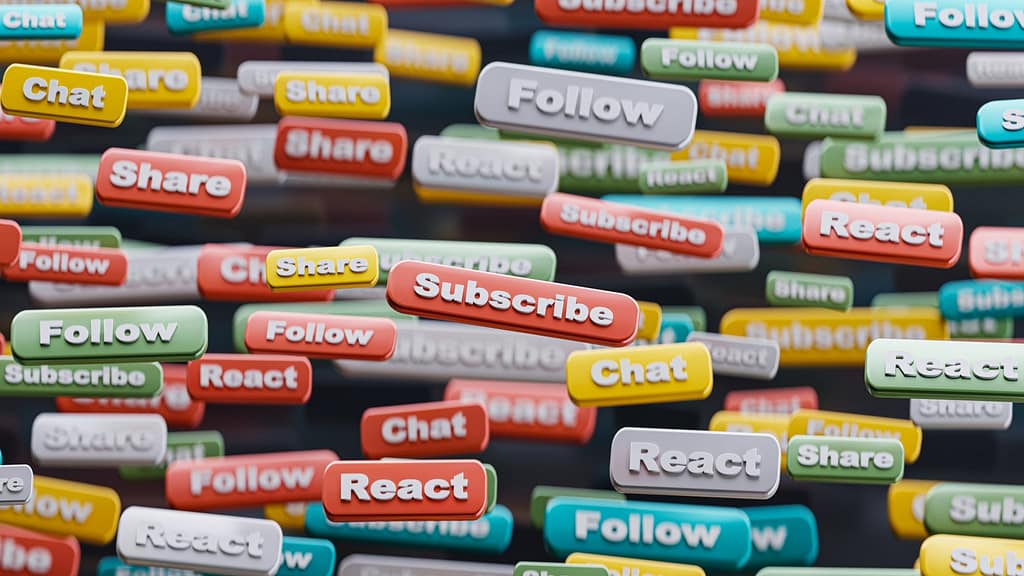
Who can deny social media has become a huge f’in part of our daily lives. Beware though, the constant scrolling, liking, and comparing can take a toll on our mental well-being.
Studies show excessive social media usage can lead to anxiety, depression, and loneliness.
Today, we will explore the benefits of limiting social media usage and how it positively impacts our mental health.
When we establish boundaries and take regular breaks from the digital world, we regain control of our time and improve well-being.
Key Takeaways:
- Setting boundaries: Establishing limits on social media usage can help reduce feelings of anxiety, comparison, and FOMO.
- Improved focus: Limiting social media consumption allows for more time to focus on important tasks and real-life connections, leading to increased productivity and mental clarity.
- Better self-care: Taking breaks from social media can enhance overall well-being by promoting healthier habits, such as mindfulness, exercise, and quality sleep.
The Impact of Excessive Social Media Use
Psychological Effects
Research has consistently shown that excessive use of social media can have a negative impact on mental health, leading to increased feelings of anxiety, depression, and loneliness among users.
Studies highlight a variety of detrimental effects such as body shaming, the risk of addiction, cyberbullying, and decreased subjective well-being and life satisfaction. This happens particularly among users at risk of social media addiction who often report depressive symptoms and lower self-esteem.
The addictive way social media works can disrupt sleep patterns, as some may find themselves scrolling late into the night, affecting their quality of rest.
The dopamine hit from likes and comments can create a cycle of seeking validation from online interactions, rather than forming real connections offline.
Social Ramifications
The excessive use of social media can also have great negative impacts on one’s social life and relationships.
Excessive screen time can lead to decreased face-to-face interactions, reducing the depth and quality of personal connections. This can result in feelings of isolation and detachment from real-life experiences.
We need to strike a balance between online and offline interactions to maintain healthy relationships and social well-being.
When we are mindful of our social media usage, we prioritize genuine connections and meaningful experiences, like camping with the family with phones locked in the cars while we sit around the campfire, swatting mosquitos and wondering if there are REALLY bears like the signs say. Real interactions.
Strategies for Limiting Social Media Usage
Some of us find ourselves mindlessly scrolling through social media feeds for hours on end, which can significantly FUCK us up.
We should take proactive steps to limit social media usage for a healthier mindset and lifestyle.
Setting Boundaries and Goals
An effective way to curb social media usage is by setting boundaries and goals for ourselves.
Determine specific times of the day when you can check your accounts and stick to them.
Set a time limit for each session and gradually reduce it to a more reasonable duration.
By establishing these boundaries, you can gain better control over your social media consumption and free up time for other activities.
Digital Detox and Mindfulness Techniques
Media inundation can overwhelm our senses, leading to increased stress and distraction.
Engaging in a digital detox, where you completely disconnect from social media for a set period, can help recharge your mental batteries.
Practicing mindfulness techniques such as deep breathing, meditation, or yoga can also aid in reducing anxiety and improving focus amid the constant digital noise.
With the constant barrage of information and notifications on social media platforms, it’s crucial to take a step back and prioritize your mental well-being. Incorporating digital detox and mindfulness techniques into your daily routine can significantly enhance your overall mental health and help you find a better balance in the digital age.
Benefits of a Balanced Online Life
Nowadays, social media has become an integral part of our daily routines. It’s hard to imagine life without scrolling through feeds or checking notifications. However, setting boundaries and limiting our online usage can lead to a more fulfilling and mentally healthy life.
Improved Mood and Self-Esteem
Life can get overwhelming when we constantly compare ourselves to the perfectly curated lives we see online. By reducing our time on social media, we can reduce feelings of inadequacy and jealousy.
This shift allows us to focus on our own strengths and accomplishments, ultimately boosting our self-esteem and improving our overall mood.
Any excessive use of social media has been linked to increased anxiety and depression.
By taking breaks and engaging in real-life activities, we can develop a more positive outlook and enhance our mental well-being.
Enhanced Real-life Relationships
Enhanced real-life relationships are a crucial component of a fulfilling life. While social media enables us to stay connected with friends and family, nothing can replace face-to-face interactions. By spending more time offline and investing in personal relationships, we can deepen our connections and strengthen our support system.
Conclusion
Taking this into account, limiting your social media usage can have a positive impact on your mental well-being. By setting boundaries, you can reduce feelings of comparison, anxiety, and FOMO, while also fostering genuine connections and being more present in the moment. Bear in mind, it’s important to prioritize your mental health and find a healthy balance with social media to enjoy its benefits without its downsides. So, take a step back, disconnect when needed, and prioritize activities that bring you joy and fulfillment offline.

